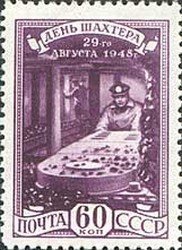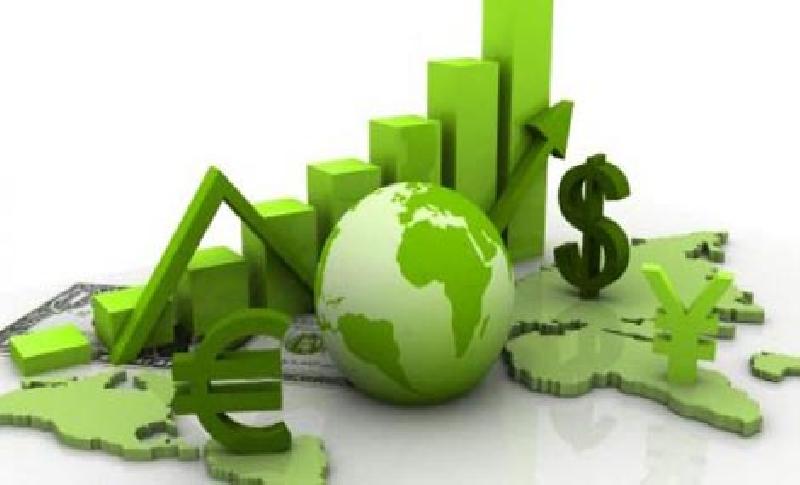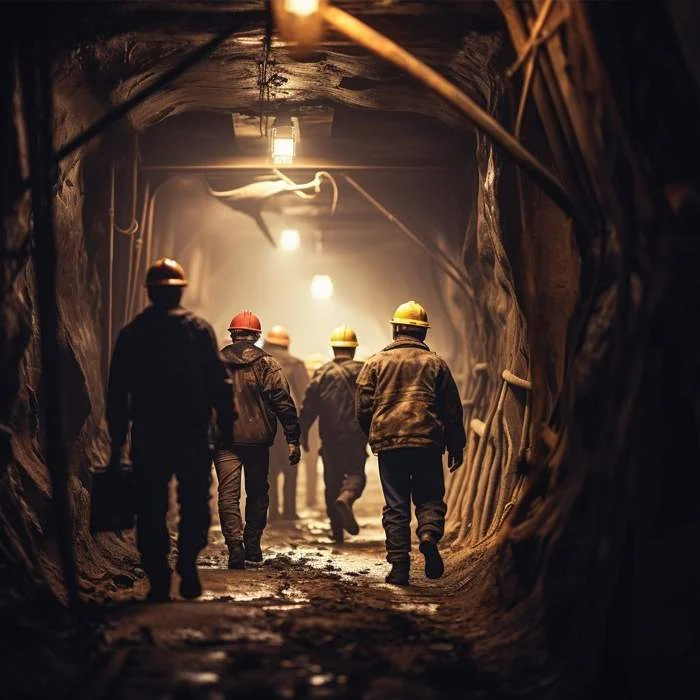Stamp: Miner at a coal-cutter (Soviet Union, USSR 1948)
Miner at a coal-cutter (Soviet Union, USSR 1948)
29 August (Soviet Union, USSR ) within release Miner's Day goes into circulation Stamp Miner at a coal-cutter face value 60 Russian kopek
| Stamp Miner at a coal-cutter in catalogues | |
|---|---|
| Michel: | Mi:SU 1237 |
Stamp is square format.
Also in the issue Miner's Day:
- Stamp - Miner's Day face value 30;
- Stamp - Miner at a coal-cutter face value 60;
Stamp Miner at a coal-cutter it reflects the thematic directions:
An economy is an area of the production, distribution and trade, as well as consumption of goods and services. In general, it is defined as a social domain that emphasize the practices, discourses, and material expressions associated with the production, use, and management of resources. A given economy is a set of processes that involves its culture, values, education, technological evolution, history, social organization, political structure, legal systems, and natural resources as main factors. These factors give context, content, and set the conditions and parameters in which an economy functions. In other words, the economic domain is a social domain of interrelated human practices and transactions that does not stand alone.
A miner is a person who extracts ore, coal, chalk, clay, or other minerals from the earth through mining. There are two senses in which the term is used. In its narrowest sense, a miner is someone who works at the rock face; cutting, blasting, or otherwise working and removing the rock In a broader sense, a "miner" is anyone working within a mine, not just a worker at the rock face
A festival is an event celebrated by a community and centering on some characteristic aspect or aspects of that community and its religion or cultures. It is often marked as a local or national holiday, mela, or eid. A festival constitutes typical cases of glocalization, as well as the high culture-low culture interrelationship. Next to religion and folklore, a significant origin is agricultural. Food is such a vital resource that many festivals are associated with harvest time. Religious commemoration and thanksgiving for good harvests are blended in events that take place in autumn, such as Halloween in the northern hemisphere and Easter in the southern.
A profession is a field of work that has been successfully professionalized. It can be defined as a disciplined group of individuals, professionals, who adhere to ethical standards and who hold themselves out as, and are accepted by the public as possessing special knowledge and skills in a widely recognised body of learning derived from research, education and training at a high level, and who are prepared to apply this knowledge and exercise these skills in the interest of others



